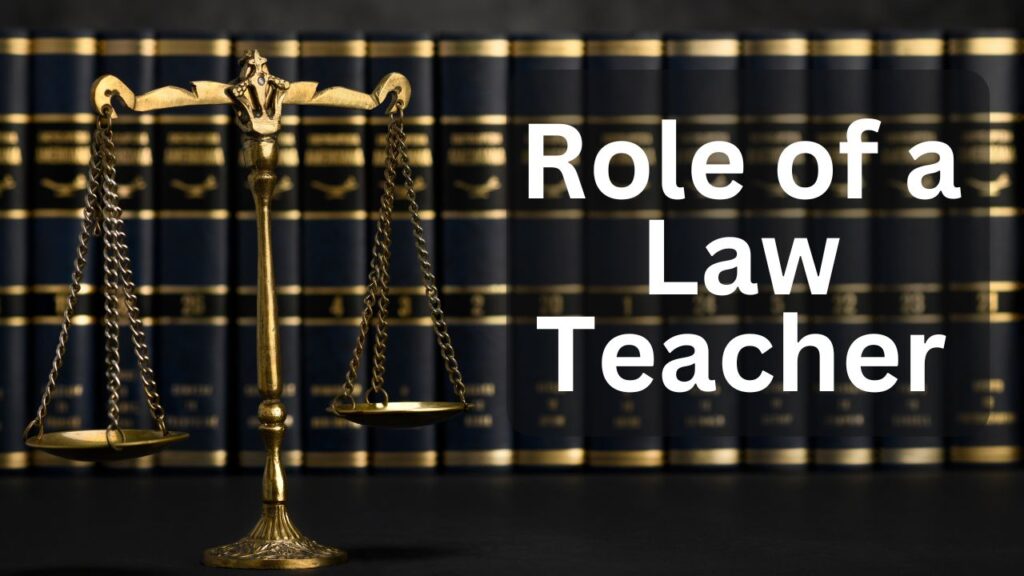100+ Interview Questions for Law Teacher: Key Insights and Tips

Getting ready for a law teacher interview can be challenging, but with proper preparation, you can significantly boost your confidence.
Understanding common interview questions will help you anticipate what the interviewers want to know and allow you to formulate clear, strong responses.
Questions often probe into your teaching philosophy, adaptability, and ability to engage students of diverse backgrounds.
In this blog post, we’ll explore the most frequent questions asked in law teacher interviews and provide tips on how to answer them effectively.
From showcasing your teaching experience to demonstrating your passion for nurturing future legal minds, you’ll learn what it takes to stand out as a candidate.
Get ready to unlock the secrets to nail your law teacher interview!
Understanding the Role of a Law Teacher

A law teacher plays a vital role in shaping the future of legal professionals. They combine deep legal knowledge with effective teaching methods to ensure students grasp complex legal principles.
Teaching Philosophy and Methods
A law teacher’s teaching philosophy is anchored in the belief that legal education should be engaging, inclusive, and practical. You must emphasize critical thinking, encouraging students to analyze various perspectives within the law.
You often adopt a student-centered approach to cater to different learning styles.
Interactive teaching methods, like case studies and moot courts, make the material more relatable.
Preparing for the Interview

Preparing for a law teacher interview involves understanding the institution and effectively demonstrating your legal knowledge.
Focus on specifics about the school and showcase your teaching and legal experience.
Researching the Institution
Before the interview, research the law school thoroughly. Start with the school’s website. Look at their mission statement, faculty profiles, and course offerings.
Understanding the institution’s focus helps you tailor your answers to show you are a good fit.
Showcasing Your Legal Expertise
Demonstrate your legal knowledge and teaching skills during the interview.
Prepare to discuss your academic background, including degrees and certifications. Highlight your teaching experience, such as courses taught or innovative teaching methods you’ve used.
Be ready to speak about your legal expertise. Describe specific cases, research, or areas of law where you excel. Use clear examples to showcase how you can contribute to the school’s program.
Practicing responses to common interview questions can also help you confidently convey your strengths and fit for the role.
100 Interview Questions

- How do you manage your time when balancing teaching and research?
- Sample Answer: “I use a strict schedule. I allocate specific hours for research and teaching. I also use digital tools to track tasks.”
- What teaching methods do you find most effective for law students?
- Sample Answer: “Interactive methods like seminars and group discussions. These help students engage deeply.”
- How do you address different learning styles in your classroom?
- Sample Answer: “I use a mix of teaching methods such as lectures, visual aids, and hands-on activities.”
- Describe a time when you had to adapt your teaching style for a student.
- Sample Answer: “I had a student struggling with traditional lectures, so I started using more visual aids and case studies.”
- How do you stay updated with current legal developments?
- Sample Answer: “I regularly read law journals and attend seminars and workshops.”
- What is your approach to grading and feedback?
- Sample Answer: “I provide detailed feedback to help students improve.”
- How would you handle a student who disagrees with your grading?
- Sample Answer: “I would listen to their concerns, review the work again, and explain the criteria clearly.”
- Can you give an example of a group project you’ve assigned?
- Sample Answer: “I once assigned a project where students worked in teams to draft a mock legislation.”
- What’s your approach to teaching ethics in law?
- Sample Answer: “I incorporate real-world scenarios and case studies to highlight ethical dilemmas.”
- How do you encourage critical thinking in your students?
- Sample Answer: “I ask open-ended questions and encourage debates on various legal issues.”
- How do you prepare for a new class?
- What are your research interests?
- How do you integrate technology into your teaching?
- How do you handle classroom disruptions?
- Describe your experience with online teaching.
- How do you mentor students outside of class?
- What steps do you take to make your classroom inclusive?
- How do you involve students in your research?
- What do you enjoy most about teaching law?
- How do you handle tight deadlines?
- What challenges do you face in teaching law?
- How do you evaluate the success of your teaching methods?
- Describe a successful group project you’ve led.
- What is your philosophy on academic integrity?
- How do you help students with time management?
- Describe your experience with curriculum development.
- How do you support students in preparing for exams?
- What techniques do you use to engage large classes?
- How do you ensure your exams are fair and comprehensive?
- Describe a time when a group project didn’t go as planned.
- How do you handle differing opinions in class discussions?
- What methods do you use to assess student participation?
- How do you provide support to struggling students?
- What inspired you to become a law teacher?
- How do you incorporate international law into your curriculum?
- How do you teach complex legal theories?
- How do you balance theoretical and practical teaching?
- What’s your approach to continuing legal education?
- How do you handle ethical dilemmas in exams or assignments?
- How do you foster a positive classroom environment?
- Describe a time when you received constructive feedback.
- How do you prepare students for the bar exam?
- How do you promote collaboration among students?
- What role does research play in your teaching?
- How do you teach critical legal writing skills?
- How do you align your teaching with current legal standards?
- What is your approach to interdisciplinary teaching?
- Describe your experience with peer evaluations.
- How do you handle sensitive topics in class?
- How do you measure student learning outcomes?
- How do you incorporate case studies into your lessons?
- What is your method for teaching legal ethics?
- Describe a successful mentorship experience.
- How do you introduce first-year students to legal research?
- What strategies do you use for continuous improvement in teaching?
- How do you handle a student who is consistently late to class?
- What steps do you take to prepare for each lecture?
- How do you balance student engagement with covering all material?
- What’s your approach to teaching public law?
- How do you incorporate guest speakers into your curriculum?
- Explain a time when you had to deal with academic dishonesty.
- How do you encourage students to participate in moot court?
- What role does peer review play in your grading system?
- How do you use simulations in your teaching?
- How do you personalize your teaching approach for different classes?
- How do you handle conflicts within student groups?
- What’s your approach to teaching legal history?
- How do you use feedback from students to improve your teaching?
- Describe how you teach procedural law.
- How do you encourage students to publish their research?
- How do you involve your students in local community projects?
- Describe a time when you had to mediate a conflict in your class.
- How do you incorporate technology in legal research?
- What’s your approach to teaching comparative law?
- How do you promote academic rigor in your class?
- Describe your method for teaching contract law.
- How do you use past exam questions to prepare students?
- How do you ensure academic fairness in group projects?
- Explain your approach to teaching administrative law.
- How do you prepare students for legal internships?
- What methods do you use to improve student retention?
- How do you teach critical analysis of legal texts?
- Describe your experience with developing online courses.
- What is your strategy for handling large volumes of coursework?
- How do you ensure students understand legal terminology?
- How do you incorporate experiential learning in your teaching?
- Describe your approach to teaching family law.
- How do you support students writing their theses?
- What is your method for handling late assignments?
- How do you keep your course content relevant?
- Describe a time when you had to innovate in your teaching approach.
- How do you evaluate the effectiveness of group projects?
- What’s your approach to teaching tort law?
- How do you provide career guidance to students?
- How do you manage administrative tasks alongside teaching?
- Describe your experience in developing law school policies.
- How do you make your lectures engaging?
- What steps do you take to prevent plagiarism?
- How do you address cultural diversity in the classroom?
- What’s your method for teaching substantive law?
Frequently Asked Questions

This section covers common questions asked in law teacher interviews, focusing on lecture preparation, staying current with legal trends, student assessments, adapting teaching methods, and giving feedback.
Can you describe your approach to preparing and delivering lectures in law?
Your approach to preparing and delivering lectures in law should include thorough research, creating detailed outlines, and using examples to illustrate complex points. This ensures you communicate the material clearly and keep students engaged.
How do you stay current with legal developments and integrate them into your teaching?
Staying current with legal developments involves following legal news, attending conferences, and reading recent case studies. You then integrate this information into your lessons to keep the curriculum relevant and up-to-date.
How do you assess student understanding and knowledge in your law courses?
You can assess student understanding through a mix of quizzes, essays, and class participation. Regular feedback and exams also help ensure students grasp the core concepts.
Can you provide an example of how you have adapted your teaching methods to accommodate different learning styles?
Adapting teaching methods might include using a variety of instructional techniques like visual aids, interactive discussions, and practical exercises. For instance, converting a traditional lecture into a Q&A session can cater to different learning preferences.
How do you approach giving constructive feedback to law students?
Providing constructive feedback involves being specific, timely, and focused on improvement. You should aim to highlight strengths, point out areas needing improvement, and offer actionable advice to help students grow academically.
All the Best !






